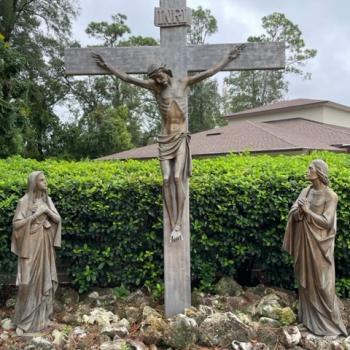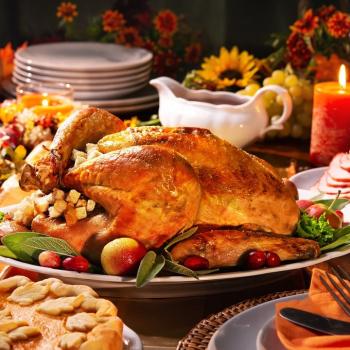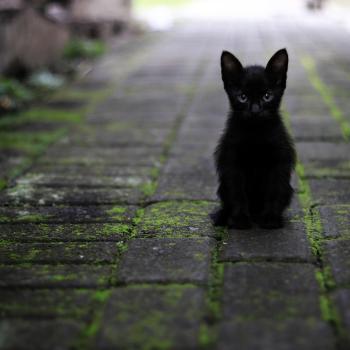
Image by Gordon Johnson // Pixabay
I grew up in a Christian tradition that was completely anti-Halloween. We were not allowed to Trick-or-Treat, and the church took the idea of the Devil’s Day very seriously. Halloween was not a holiday to play around with. This was a dangerous day for Christians because Satan had free reign over the earth.
In fact, Christian mythology and superstition have played a large part in the spooky ideas that haunt the month of October. This year, October will include two full moons, a blood moon, and an eclipse. Not to mention – today is Friday the 13th. Where did we get these superstitions about things that are seemingly natural or coincidental?
The 13
Thirteen is just a number. However, we find meaning in numbers as societies. In the Jewish scriptures, they have certain numbers that are meaningful. These include 3, 7, and 12. These numbers are often used to portray a meaning beyond their literal and numerical value.
Phillips Stevens, Jr., an anthropologist who studies cults, believes that the fear of the number 13 comes from the Middle Ages. It was number of people at the Last Supper – Jesus and the twelve disciples. This numerological interpretation has been imprinted on our society. Stevens notes several areas in which the 13 may be ommitted.
“For example, it became taboo to seat 13 people at the table; large formal state dinner parties never sit 13 at the table, he says. ‘Avoidance of 13 spewed into high-rise buildings,’ Stevens adds. ‘You will not find one 13th floor in any building, and some airlines do not have a 13th row on their planes.'”
Of course, there are multiple cultures and religions that use numerology. Even the number 12 is not unique to Judeo-Christian origins. In this Mental Floss article:
“For whatever reason, among many cultures, the number 12 emerged throughout history as a “complete” number: There are 12 months in a year, 12 signs of the zodiac, 12 Gods of Olympus, 12 sons of Odin, 12 labors of Hercules, 12 Jyotirlingas or Hindu shrines where Shiva is worshipped, 12 successors of Muhammad in Shia Islam, and 12 tribes of Israel. In Christianity, Jesus was betrayed by one of his 12 Apostles—Judas—who was the 13th guest to arrive for the Last Supper.”
“Good” Friday?
You might know where this is going. The Last Supper (where we get our concern over the number 13) was on Thursday. Jesus’ trial and crucifixion followed directly after. Christians around the world call this “Good Friday”. Even though Christians believe this death was ultimately for the good of the world, it is still tied to the murder of God.
So why Friday the 13th? Well, it’s because it’s the combination of two superstitions into a singular event. The fact that this combination is unusual also lends itself to intrigue. Stuart Vyse, professor of psychology, notes:
“Interestingly, the infrequency of Friday the 13th helps to maintain the anxiety it provokes. There is a 13th day in every month of the year, but when the 13th falls on a Tuesday or a Sunday or any day but Friday, we take little notice. Same goes for the 50 or more non-13th Fridays each year.”
What Now?
Sometimes superstitions and spooky things are fun. Halloween is often a time to enjoy the changing seasons and get free candy! However, it can also bring out the superstitious nature of our own tradition. The number 13 is not cursed or full of bad luck. Friday the 13th is not an unlucky day to stay in bed. All of these things come from our own need to pull meaning from our tradition. Don’t let this detract you from the real work that’s left to do!

















